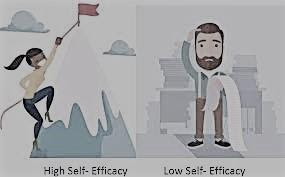By Victoria Livingston, Rising Senior, Boston College

“Joining FirstGen Ahead has helped me become more confident in my professional skills, we all as connected me with amazing individuals that I am continuously learning from.” -Victoria Livingston, FGA Cohort 2020-2021
How do you handle feeling like you are undeserving of your success? If you are continuously fearful of being “found out,” no matter how much you have done, no matter how much external validation you receive, then you are likely suffering from imposter syndrome. Thinking you are an imposter has less to do with what you have actually done and everything to do with how you perceive yourself. Especially prevalent among women, minorities, and people from less privileged socioeconomic backgrounds, those with imposter syndrome constantly undermine their achievements and think that they have somehow fooled everyone into believing in their capabilities. Praise can feel meaningless when you think you have only gotten to where you are as a result of luck.
In April’s FirstGen Ahead Peer Session, we had the wonderful opportunity to learn about imposter syndrome from Cecilia Macias. We learned how to identify and assess our personal experiences with this phenomenon. Unfortunately, many of us have felt that our accomplishments are not enough or that others are more deserving and more qualified than we are. These feelings can lead to negative consequences, such as heightened anxiety or depression, lack of professional and personal satisfaction, and unreached potential. Thankfully, Cecilia also taught us how to cope with this.
There can be many factors influencing our perception of our achievements, such as family, pressure relating to limited diversity, and lack of organizational support. However, it is incredibly important to stop and recognize what these factors may be, as well as to intentionally reframe our mindset to highlight our strengths rather than dwell on our shortcomings. Cecilia also urged us to think about and share some things we are happy to have achieved; we all undoubtedly have amazing successes to be proud of! Our participation in FirstGen Ahead is already ample proof that we have accomplished a lot. This session was a great reminder that no matter the obstacles we face or how much our environments push us into feeling undervalued, we are always worth celebrating.
As a first-generation college student, in addition to being a woman of color, it is very easy to fall into the trap of undermining my worth. After reflecting during our session with Cecilia, I realized that there have been so many times where I have felt I was underqualified for certain opportunities or not doing enough to earn my spot. Even as I await my internship this summer, I catch myself asking how I could have possibly landed it. Our conversation during this session has helped me realize how important it is to value myself and my accomplishments. I had not realized just how much imposter syndrome has affected my thought process at times and how harmful it could be if I continue to move forward with such a detrimental mindset. The last thing I want is to keep myself from growing and achieving my goals. I (and all of my FGA peers) have come so far and deserve all of our successes. We are far from imposters and now have the tools to ensure we never forget this.











